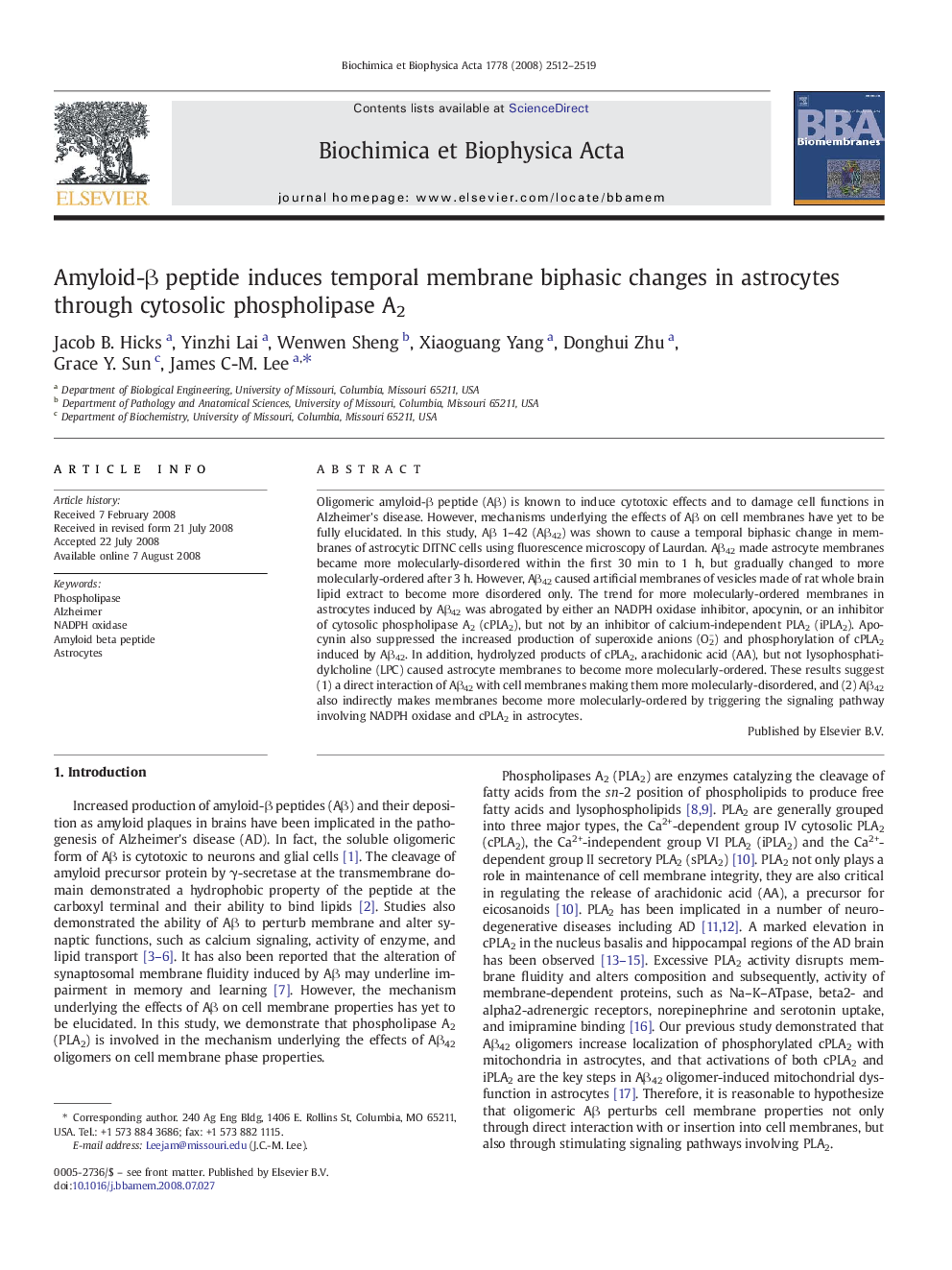| Article ID | Journal | Published Year | Pages | File Type |
|---|---|---|---|---|
| 1945275 | Biochimica et Biophysica Acta (BBA) - Biomembranes | 2008 | 8 Pages |
Oligomeric amyloid-β peptide (Aβ) is known to induce cytotoxic effects and to damage cell functions in Alzheimer's disease. However, mechanisms underlying the effects of Aβ on cell membranes have yet to be fully elucidated. In this study, Aβ 1–42 (Aβ42) was shown to cause a temporal biphasic change in membranes of astrocytic DITNC cells using fluorescence microscopy of Laurdan. Aβ42 made astrocyte membranes became more molecularly-disordered within the first 30 min to 1 h, but gradually changed to more molecularly-ordered after 3 h. However, Aβ42 caused artificial membranes of vesicles made of rat whole brain lipid extract to become more disordered only. The trend for more molecularly-ordered membranes in astrocytes induced by Aβ42 was abrogated by either an NADPH oxidase inhibitor, apocynin, or an inhibitor of cytosolic phospholipase A2 (cPLA2), but not by an inhibitor of calcium-independent PLA2 (iPLA2). Apocynin also suppressed the increased production of superoxide anions (O2−) and phosphorylation of cPLA2 induced by Aβ42. In addition, hydrolyzed products of cPLA2, arachidonic acid (AA), but not lysophosphatidylcholine (LPC) caused astrocyte membranes to become more molecularly-ordered. These results suggest (1) a direct interaction of Aβ42 with cell membranes making them more molecularly-disordered, and (2) Aβ42 also indirectly makes membranes become more molecularly-ordered by triggering the signaling pathway involving NADPH oxidase and cPLA2 in astrocytes.
